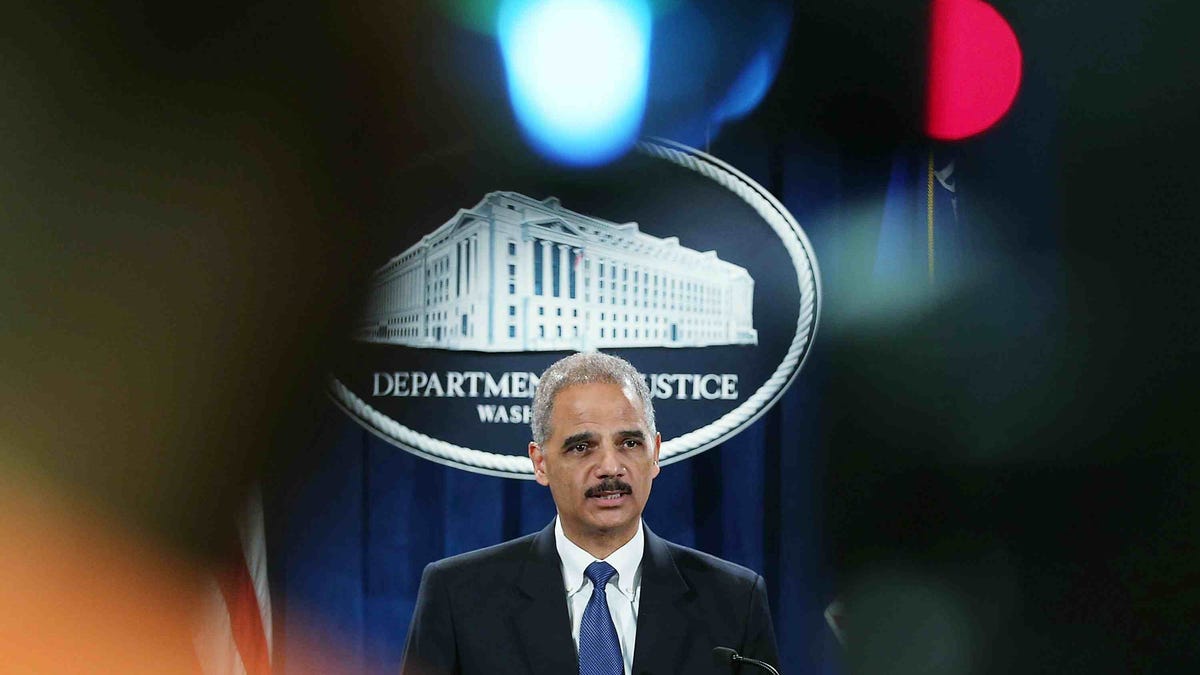Google challenges DOJ's surveillance gag order
The search giant asks to clear its name by arguing it has the First Amendment right to reveal how many Foreign Intelligence Surveillance Act orders it receives from the U.S. government.

Google has asked the secretive Foreign Intelligence Surveillance Court to lift a gag order, saying it has the constitutional right to clear its name by discussing government data requests.
The company filed a five-page motion before the court on Tuesday afternoon, arguing it has "a right under the First Amendment to publish" summary statistics about requests made under the Foreign Intelligence Surveillance Act.
David Drummond, Google's chief legal officer, sent an open letter last week to Attorney General Eric Holder and FBI Director Robert Mueller asking for "transparency" -- but was unable to reach an accord.
Tuesday's court filing, which says the Justice Department and the FBI claim that publication of "aggregate numbers is unlawful," is likely to increase political pressure on the Obama administration to divulge more details about its controversial domestic surveillance programs involving the National Security Agency. President Obama defended the programs' legality as recently as Monday.
A Google spokesman said in a statement to CNET Tuesday:
We have long pushed for transparency so users can better understand the extent to which governments request their data--and Google was the first company to release numbers for National Security Letters. However, greater transparency is needed, so today we have petitioned the Foreign Intelligence Surveillance Court to allow us to publish aggregate numbers of national security requests, including FISA disclosures, separately. Lumping national security requests together with criminal requests -- as some companies have been permitted to do -- would be a backward step for our users.
Google, Apple, Yahoo, Microsoft, Facebook, and other Internet companies were left reeling after a pair of articles two weeks ago alleged that they provided the NSA with "direct access" to their servers through a so-called PRISM program.
By the next day, however, CNET reported that was not true, and the Washington Post backtracked from its original story on PRISM. Google's filing before the surveillance court Tuesday said the initial news coverage was "misleading."
A Justice Department spokesman did not immediately respond to a request for comment. We will update this story if we get a response.
Other large Internet companies have released only totals that combine legal requests made under the Foreign Intelligence Surveillance Act with other forms of legal process, including day-to-day state and local police investigations of kidnapping, murder, missing persons, suicide prevention, fraud, and other cases. That makes it impossible to determine how many FISA requests they have received.
Microsoft says it received a combined total of "between 6,000 and 7,000" orders from federal, state, and local government agencies for "between 31,000 and 32,000 consumer accounts" during the six months that ended in December 2012. Facebook's total: up to 10,000 requests for up to 19,000 accounts. Apple's total: up to 5,000 requests for up to 10,000 accounts or devices. Yahoo disclosed receiving up to 13,000 requests, but did not say how many user accounts were swept in.
Google wants to go further and reveal how many requests the government made under FISA, an intelligence-gathering law that was amended in 2008. Section 702 of that law says surveillance may be authorized by the attorney general and director of national intelligence without prior approval by the secret Foreign Intelligence Surveillance Court, as long as minimization requirements and general procedures blessed by the court are followed.
In March, Google became the first Internet company to shed light on FBI "national security letter" requests for non-content user data that includes users' names and addresses. CNET disclosed in May that Google was fighting the Justice Department in two different federal courts over the legality of warrantless surveillance requests, not counting Tuesday's filing.
Update, 1:50 p.m. PT: Adds more details.
Disclosure: McCullagh is married to a Google employee not involved in this issue.

